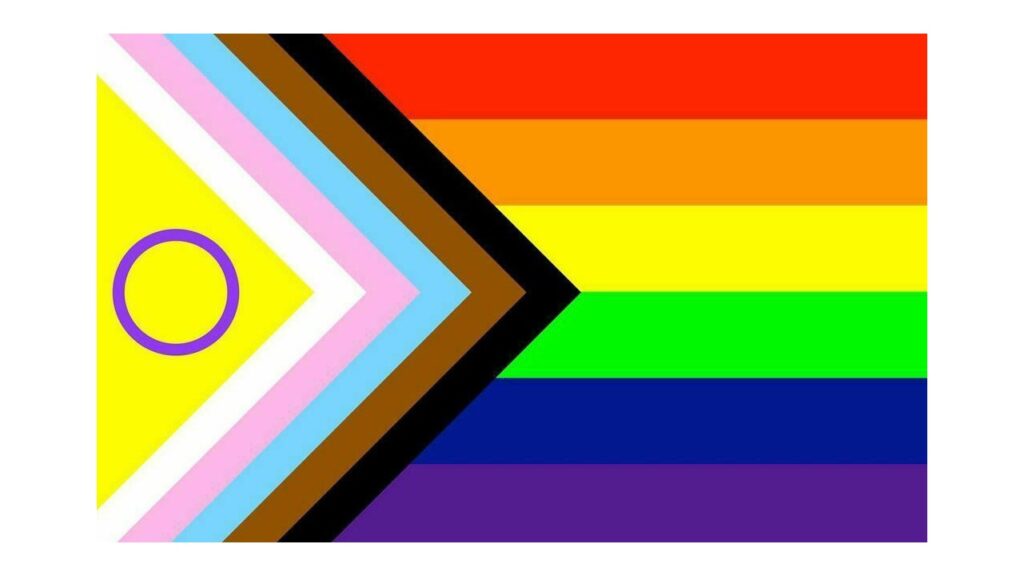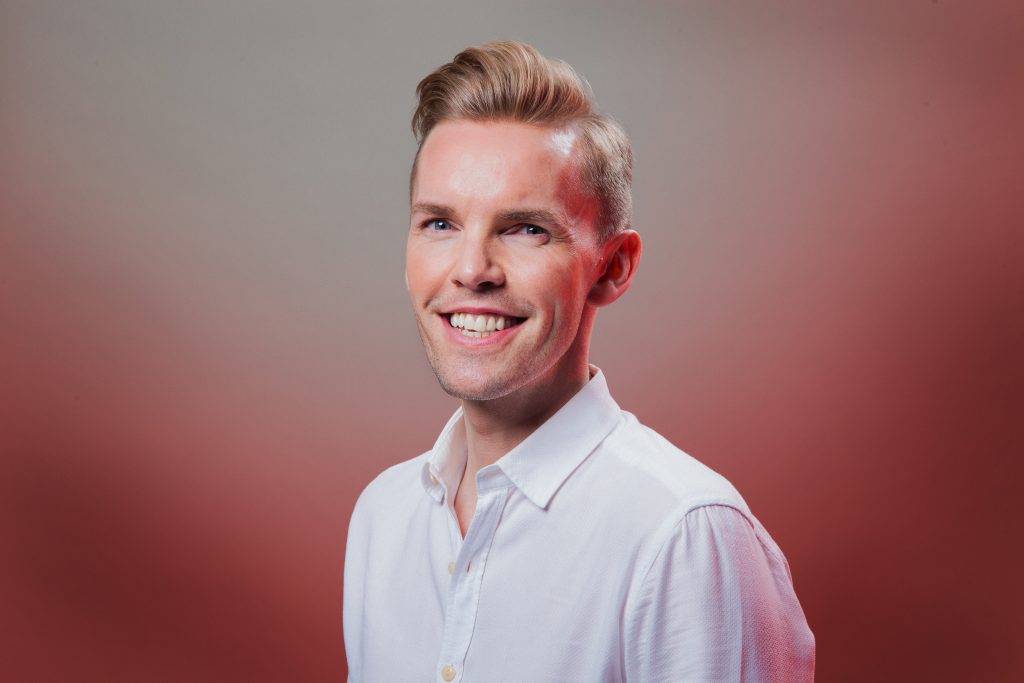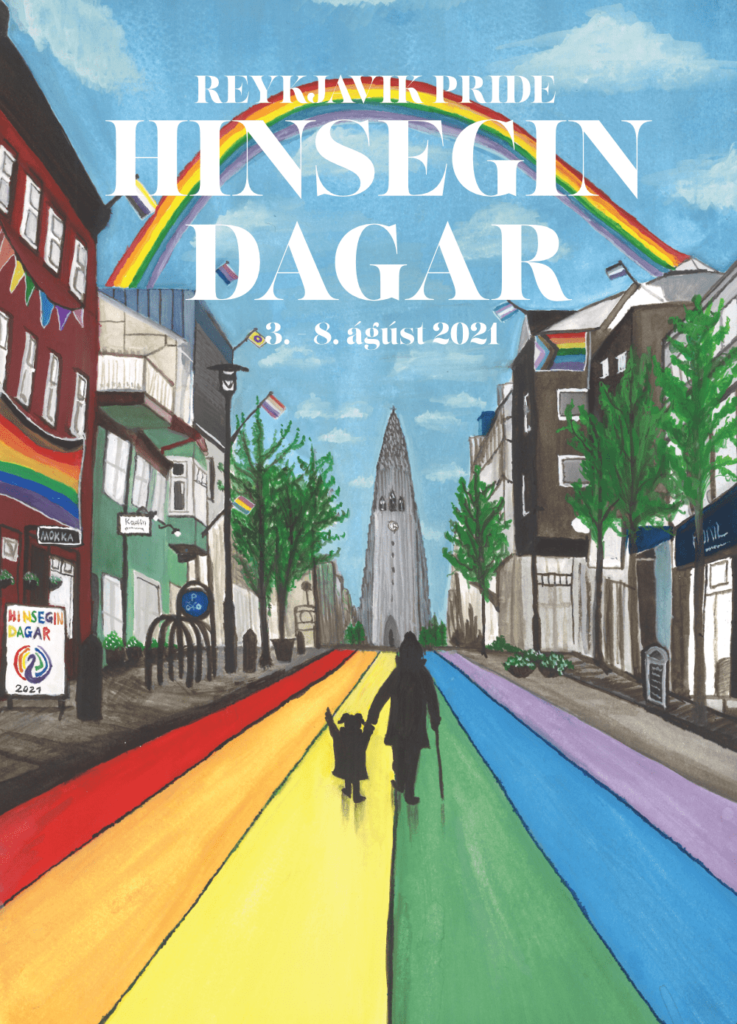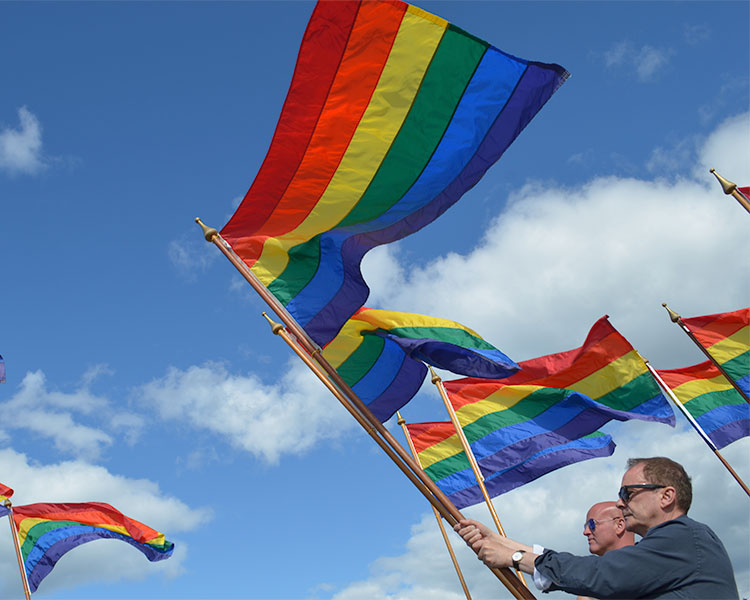A festival with no parade is still a festival says chair of Reykjavík Pride. “We are set on making Reykjavik Pride the most amazing festival we can within the set restrictions.”
Hinsegin dagar (Reykjavik Pride) began yesterday with a splash of paint downtown. The festival, which was officially cancelled in 2020 due to gathering restrictions, was on track to be back in full bloom for 2021 before the latest wave of delta variant infections hit Iceland harder than expected.
Reasonably, Iceland’s top epidemiologist Þórólfur Guðnason and government officials promptly pulled the plug on one of Iceland’s biggest festivals, Þjóðhátíð. Even with nearly 85% of Iceland vaccinated and more doses on the way, covid-19 is posing a challenge for festival organizers. Last year Þórólfur Guðnason even performed a rendition of the queer anthem I am who I am with his son Hafstein Þórólfsson. Dr. Fauci has nothing on these vocals!
Ásgeir Helgi Magnússon, the chair of the board for the festival this year, mentioned to RÚV that although the festival had become a lot of work, it was still possible to get out and celebrate queer rights. Speaking of the many independently organized off-venue events, Ásgeir mentioned: “With the pandemic limiting the parade, it leaves responsibility to each of us to take the message of Hinsegin dagar forward and promote and protect queer rights. Community responsibility also depends on attendees of all events staying distanced and masked where appropriate, as the festival organizers have poste.”
Last year, Icelanders were encouraged to celebrate pride by taking their own pride walk downtown and decorating their homes. Although there wasn’t the traditional parade with decked out unicorn floats, the mayor of Reykjavik in drag, or queens dancing their wigs off, Hinsegin dagar still made a big impact. Margrét Ágústa Þorvaldsdóttir mentioned representation were more important than a party: “We consider it important to be visible. We want to celebrate Reykjavik Pride of course. Continuing the fight, we’ll meet in smaller groups to celebrate.”
Queerness All Around Iceland
Luckily before restrictions for the fourth wave officially hit, the town of Borgarnes was able to have a pride festival of its own, called HinseginVesturland (Queer West). The festival was the first of its kind for the region with an overwhelmingly positive reception. Organizer of the festival and founder of Hinsegin Vesturland Guðrún Steinunn said: “I was just almost going to cry on the float the whole time. I just… people, there are so many people. I can not believe how many people have come and what a success it has been. This is a frenzy!”
Hinsegin Austurlands (Queer East) also shared a heartwarming video from Kletta Films of pride celebrations from towns around the east fjords with a cameo of Icelandic Prime Minister Katrin Jackobsdottir amongst other queer allies and community memebers.
At yesterdays night’s opening ceremony for the festival, Bjarni Snæbjörnsson performed a few sneak-peak numbers from his new Icelandic musical Góðan Daginn Faggi which will premiere at the National Theater soon. Trans city council member Alexandra Briem also made a speech at Gamla Bío noting that despite the quick progress Iceland has made, we must continue fighting for queer rights globally and defend our position. “We’ve made progress quickly, but it can go back just as quickly,” she said.

Speaking of progress, this year’s pride flag painted between Laugavegur and Hverfisgata was updated from simple rainbow stripes to include black, brown, and trans flag stripes with a triangular intersex flag. This updated version of the flag is an update to Daniel Quasar’s “Progress Pride Flag” that came into prominence in 2018 to better represent the cultural minorities within the LGBTQ+ community that need the most activism. After all, black and brown trans people were at the forefront of starting pride, back when pride was a true riot and political firestorm. The changes to the temporary flag in Reykjavik are a subtle symbolic gesture that shows how adaptive Iceland can be when it comes to queer activism. The permanent rainbow flag down Skólavörðustígur, Reykjavik’s best known street beneath Hallgrimskirkja, remains unchanged.
This Year’s Schedule
Despite the largest event being cancelled, the agenda this year is packed with all kinds of events. For the politically minded there’s a teleconference about the evolving anti-LGBTQ+ movement in Europe with Aron-Winston Le Fevre, Copenhagen Pride 2021’s human rights representative. With leaders from Hungary to Poland all attacking LGBT+ protections and physical attacks on many members of the community in the UK and Spain, Le Fevre will chat with Samtökin ‘78 chairman Þorbjörg Þorvaldsdóttir about how the global community can respond.
Maybe you’re not even sure what gender really is now a days or you’re confused about queer terminology. For that, there’s an educational event called Gay 101 with Tótla I. Sæmundsdóttir, the educational director of the Samtökin ’78. The training will cover four topics – sexual orientation, gender identity, gender characteristics and gender expression – as well as giving plenty of time for discussions and questions. No question is a stupid question in this chat.
There’s also A Conversation of Generations, an event focused on the theme of the parade this year, Queer at all ages. Telling personal stories of growing up, coming out, and overcoming adversity three gay men will chat about what it was like to be queer in Iceland at the age of 20. Then there’s also a walking tour of Reykajvik’s queer nightlife history with drinks included. Fancy a boozy queer history tour downtown anyone?
Queer at all ages, this year’s theme, gets to the heart of the community’s next project. Namely, making it safer and easier for young queer kids (especially trans kids) and seeing that even the most senior members of the queer community are protected in nursing homes and healthcare facilities. Ásgeir Helgi Magnússon, chair of this year’s festival, captured the moment and expressed his sentiment well in his letter to the community:

“It has been a pleasure watching our community come to life again, after a long time of gathering restrictions, uncertainty and risk of infection. In the last few days there has been an increase in covid cases in Iceland which shows us that we are not in the clear just yet. Surely many of us have felt isolated and missed the company of others and mundane things like talking to people you run into or listening to clatter and chatter inside a full cafe. For many of us, the situation brought back unpleasant memories when a different kind of virus shook our community. Fortunately, the casualties are not as high now as they were back then. These strange times have also reminded us of the importance of our community, of spending time together, being around like minded people, and the sense of belonging to a larger group.
“We are set on making Reykjavik Pride the most amazing festival we can within the set restrictions. There are still plenty of things we can do!”
This year’s theme of Reykjavik Pride is Queer at all ages. The age diversity among those living their lives out and proud has never been greater. With visibility and education about LGBTQ+ issues in the community, we have made it easier for children and young people to come out earlier. They have the freedom to explore their identity and deal with their feelings in an open conversation with their friends and family, and that is invaluable. But we also have to make sure that those getting older can spend their senior years in pride and joy, that they can participate in queer social life and that they are not forced back into the closet due to a lack of understanding or poor conditions in our nursing homes and health instutions. It’s our responsibility to make sure we can all live out our lives being our true selves, from youth to old age.
On behalf of the board of Reykjavik Pride, I want to welcome you all to the celebration! As usual, the programme includes a variety of cultural, educational, and fun events and entertainment and we sincerely hope that the Pride Parade will make its way through the streets of downtown Reykjaivk. In the light of recent events we urge you to check out the programme on our website hinsegindagar.is/en/programme for easy access to information about all events.”
GayIceland chatted with Ásgeir to find out more about changing schedules last minute and what events still have the green light:
How are you and your team doing now that the new covid restrictions have been announced?
“We allowed ourselves to be sad for a brief moment but now we are set on making Reykjavik Pride the most amazing festival we can within the set restrictions. There are still plenty of things we can do! Sadly the pride march is cancelled for the second year in a row. So is the outdoor concert in Hljómskálagarður park. But there are many events going on as scheduled and to reach more people we are planning on live streaming all educational events and some social events. Theater and drag performances will go on as planned but with mask mandate and a limited number of guests. We are working with RÚV on an entertainment program that will be broadcast on Saturday evening.”
How’d you come to be on the board for Hinsegin dagar, and what do you like most about the job?
“I joined the board three years ago, wanting to do volunteer work within the queer community and I thought my strengths would best come to use at Hinsegin dagar. My background is in dance so I’ve been in my element working on the production and event side of Hinsegin dagar. This year however I’m settling into a new role that involves more nail chewing, interviews and public speaking (laughs).”
How big is Hinsegin dagar normally, and how is it funded?
“Hinsegin dagar is currently one of Reykjavik city’s largest festivals, if not the largest and the city is our primary sponsor. The festival has grown quite a bit in 20 years and is able to offer a variety of educational, cultural and social events for free or at a reduced ticket rate. We also rely on the support of our sponsors and partners. Most of our funding comes from the city, Icelandic government and recently we signed a three year partnership with the European Union, who will be supporting accessibility measures at the festival.”
“On the legal front there are plenty of improvements to be made, for example recognition of co-parent and trans parenthood and laws on hate crimes.”
Where does the sponsorship money go if there’s no parade?
“There is actually only one sponsorship agreement linked to the parade itself. Landsbankinn has been the beneficiary of the parade for quite a while now. Their contribution goes to the participants of the parade via Gleðigöngupotturinn (Pride Parade Fund). Any funding not used remains in the fund for next year’s parade.”
So we’ll just have a bigger and twice as fabulous party next year?
“Exactly!”
Do you believe Gleðigangan is more of a parade celebrating lgbtq+ people or a march that’s meant to provoke political action?
“Gleðigangan is in its nature a mix of both. It’s important to come together to celebrate the achievements that have been made and to inspire others to live their life as their true selves. At the same time we use the platform to address things that need to be addressed. Hinsegin dagar is so much more than the parade. We have a weeklong program, packed with around 30 events. We have lectures and music, art shows and activism. One of our main goals is the all-important visibility and we’ll do our best to insure it this year as well.”
Some Icelandic companies have been called out in the past for pink-washing, using the rainbow during pride to market and sell more of their products without actually supporting the community or making a difference. What can these companies do better?
“I think many of the companies here in Iceland are quite aware of what it takes to be an ally. Those who Hinsegin dagar have engaged in a partnership with have earnestly wanted to know how they can do better and acted accordingly.
I think it’s important to support both social and cultural events as well as donating to the many LGBTQIA+ associations. Companies should be allowed to show social responsibility. In regard to pink-washing, I think it’s better to take the conversation with the company and explain what it takes to be a true ally. We have done this so many times, not only with companies that we are working with directly but also various companies that have chosen to sell all sorts of rainbow/ LGBTQIA+ stuff during our week for example. We have explained to them that true allies are not those who shout from the rooftops but those who also let our community benefit from their “pink business.”
What progress do you think still needs to be made in Iceland in terms of queer rights and culture?
“On the legal front there are plenty of improvements to be made, for example recognition of co-parent and trans parenthood and laws on hate crimes. We also need to raise more awareness on non-binary identities and gender neutral language both in our queer community as well as in the wider society.”

You can’t be running this whole shin-dig on your own! Who else is part of the Hinsegin dagar board this year?
“I am very lucky to be working with an amazing team. My fellow board members are Ragnar Veigar Guðmundsson (treasurer and an all-round treasure), Ragnhildur Sverrisdóttir (secretary who has the sharpest wit and tongue), Elísabet Thoroddsen (editor of the Pride Magazine which will be launched today), Herdís Eiríksdóttir (who has taken on the educational programme with Ragnhildur), and Leifur Örn Gunnarsson (who has been the Pride Store manager for many years).
Other vital members of the Reykjavik Pride team are Sigurður Starr Guðjónsson (manager of the festival), Ívar Eyþórsson (social media and marketing wizard), Snædís Snorradóttir (event manager), and Haukur Heiðar Steingrímsson (whom many might have met already at the Pride Store in Aðalstræti 2).
How can people celebrate pride this year “at home”?
“Home is where the heart is and the same thing goes for pride! We should all sit down, take a deep breath and take the time to reflect on how far we have come and pledge not to lose what we have achieved. Besides that, we can certainly attend an event or two, but if we prefer to stay at home we can invite our close friends, watch a live stream from the festival, blast Gaga’s Born This Way and boots the house down, mama yaaass gawd! At least that’s what I would do.”


